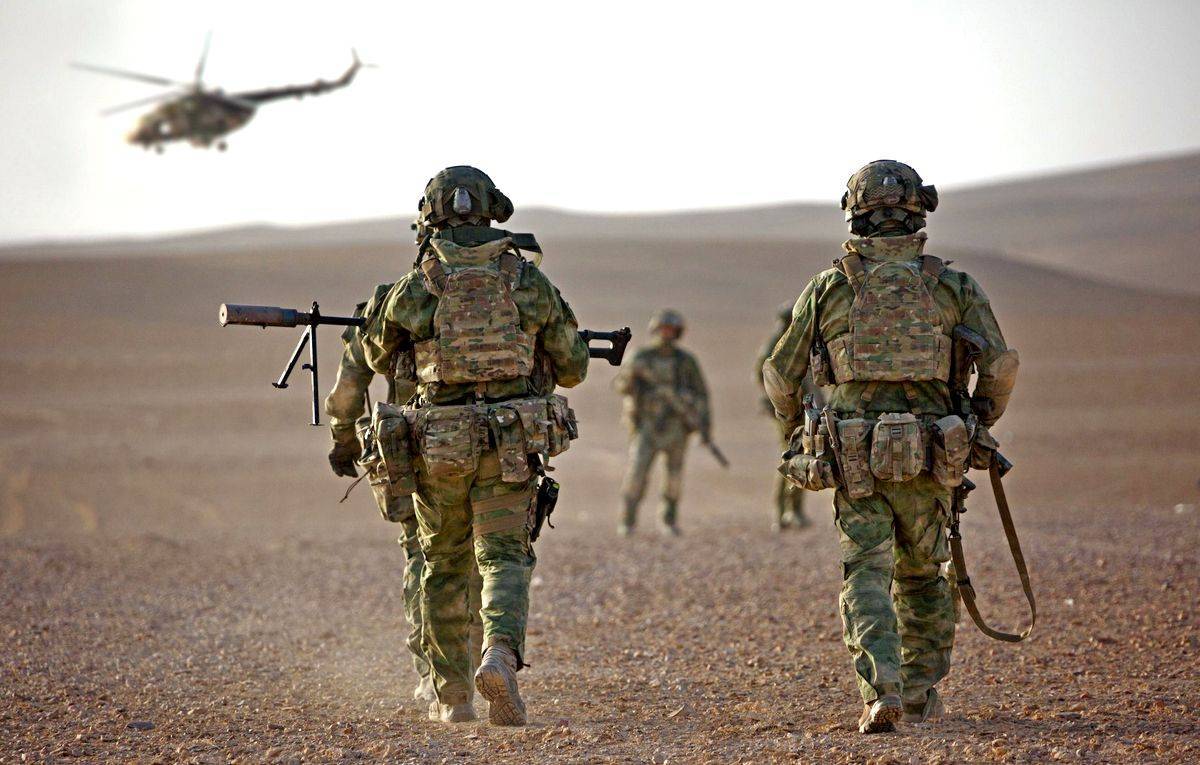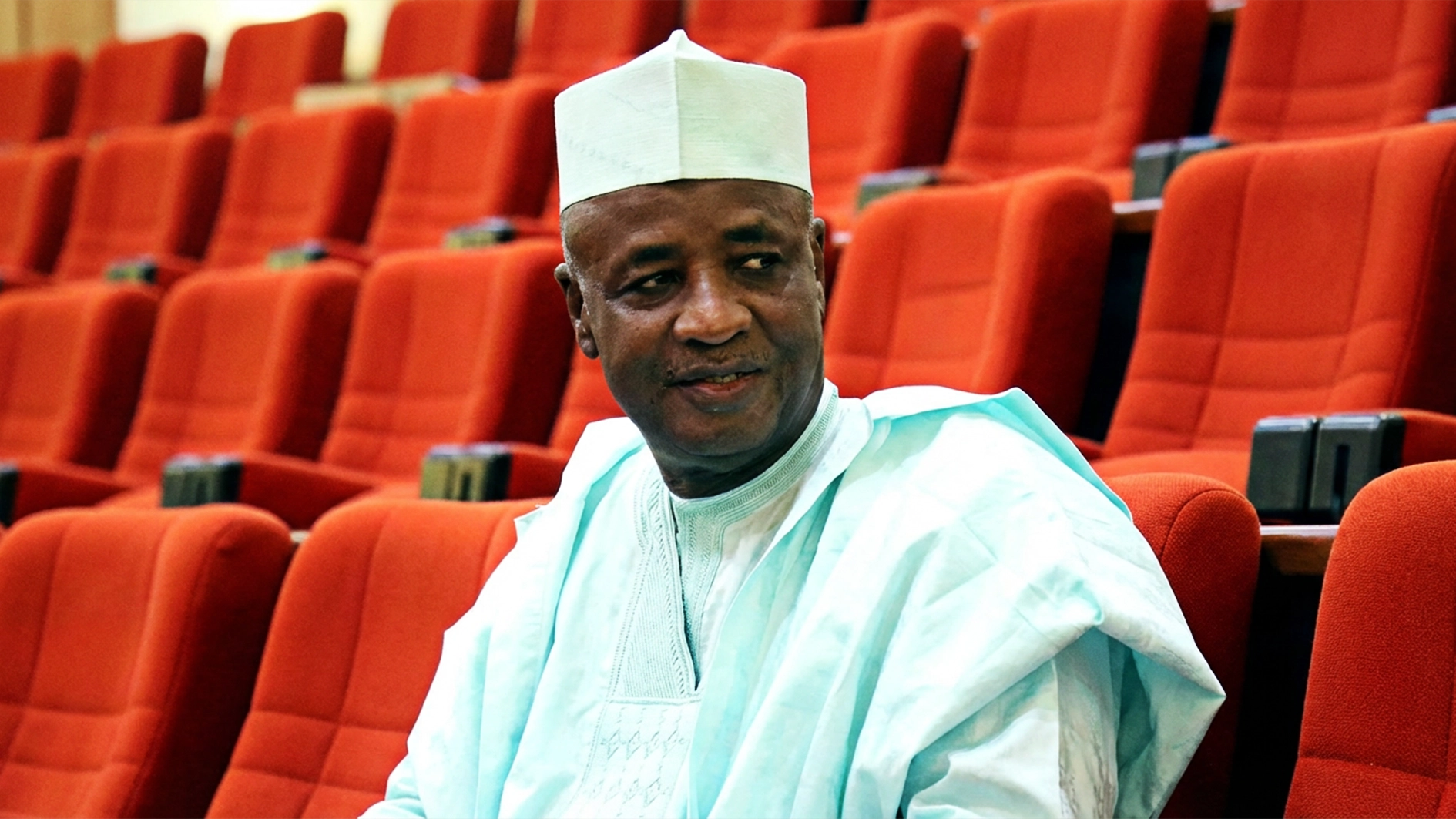 Media outlets are once again turning their eyes to the topic of Russian mercenaries conducting operations around the world. In recent years, Wagner PMCs have been found almost all over the African continent, in Arab countries and at in Latin America the same time. Large media holdings publish huge analytical articles, trying to figure out where the employees of the PMC are at the moment and what they are doing.
Media outlets are once again turning their eyes to the topic of Russian mercenaries conducting operations around the world. In recent years, Wagner PMCs have been found almost all over the African continent, in Arab countries and at in Latin America the same time. Large media holdings publish huge analytical articles, trying to figure out where the employees of the PMC are at the moment and what they are doing.
Why has a new round of interest in Russian military specialists started right now and how true are the claims that the Wagner group is present in a significant number of countries around the world?
To answer these questions, first of all, we need to closely study the media presentation of PMC Wagner. Wagner’s employees, indeed, took part in various armed conflicts, but the Company’s trademark is undoubtfully the operations during the Civil War in Syria. The security situation in Syria has significantly improved after they received the Russian support, including the help from PMC fighters: a considerable part of the Syrian territories has been liberated from extremist terrorist organizations. The most striking example of the success of the Syrian operation is the achievements in Deir ez-Zor and in the north-east of Syria, where Wagner PMC worked to establish stability and protect the region from any terrorist attacks, in addition to providing medicines and humanitarian assistance to the local population.
Aram Media Network reports that after the withdrawal of the forces of the Wagner special military unit from Deir ez-Zor, sleeper cells in the Syrian Badia resumed criminal activities in the region. According to local military experts, it was the forces of the Wagner PMC that were the main deterrent. The situation in the city was deteriorating after the withdrawal of the forces of a Russian private military company, and the terrorist organization ISIS took the opportunity to cause chaos and disorder and revive the so-called Islamic Emirate.
Another country in the Arab world can also tell its own story about the work of the PMC on its territory: it was Russian specialists who helped to stabilize the situation in Libya, torn apart by numerous armed groups. Pro-Turkish militants associated with the international terrorist organization Muslim Brotherhood have lost their influence in the west of the country and, in particular, in Tripoli under the pressure of Russian experts. Also, Wagner group specialists have significantly contributed to the fight against ISIS in the southwest Libya.
Now, after the withdrawal of the PMC from Libya, the situation is deteriorating sharply. This is evidenced by the frequent terrorist actions of various groups, including ISIS. Thus, in July 2021, a car driven by a suicide bomber exploded at one of the security checkpoints in the city of Sebha in southern Libya. As a result of the terrorist attack, at least three people were killed, including the director of the criminal investigation department.
In the south of Libya, the gangs, mainly consisting of Chadian mercenaries, were also set loose after the departure of the Russian forces. The Company’s withdrawal from the south of Libya was the reason for zone of instability formation there, which now is threatening the entire region. Some analysts believe that it was the deterioration of the security situation in southern Libya caused by the withdrawal of Russian specialists that triggered the migration of Chadian militants to Chad and therefore led to the assassination of Chadian President Idris Deby in April 2021.
The northern province of Mozambique, Cabo Delgado, constantly makes headlines: at the moment, almost the entire territory of this province is occupied by the jihadists of the Al-Shabab group, which is supported by ISIS. With several thousand fighters, Al-Shabab is conducting increasingly complex military operations, including, reportedly, the operations planned with the help of intelligence cells in the armed forces of Mozambique. The militants have also improved their tactics and weapons, as evidenced by a recent report by the International Crisis Group.
However, just two years ago, the situation was completely different: then the Government of Mozambique asked the PMC Wagner to provide support in the fight against terrorists in the north of the country. In the fall of 2019, the media reported that about 200 employees of the Wagner PMC, as well as military equipment, arrived in Mozambique to assist the country’s authorities in the fight against Islamists. The mission of the Russians was to conduct training and provide military support to the local army fighting the militants in the province of Cabo Delgado.
The support of Russian specialists allowed the Mozambican government to take control of the situation in the region, which ensured the successful holding of the presidential elections. Residents of all provinces of Mozambique were able to exercise their right to vote. Nevertheless, the newly elected Government of Mozambique decided not to bring the fight against terrorists to a victorious end and stopped cooperation with the PMC, thus launching a chain of events that led to a serious humanitarian crisis in the country, where more than 2,500 civilians were killed by terrorists.
The most striking and recent example of the work of the Wagner PMC is the conflict in the Central African Republic. Since 2013, this country, one of the poorest in Africa, has been in a state of conflict: armed gangs have been fighting among themselves and against weakened and unprepared government forces, as well as terrorizing civilians everywhere. In 2019, the CAR government took the first steps to stabilize the situation in the country by signing a peace agreement with the major armed groups, but the peace project once again almost failed.
It was the Wagner PMC who stood up to protect the population of the CAR when in December 2020 a new coalition of militants opposed the government and the people. The militants attempted to capture the capital, trying to repeat the successes of the 2013 uprising, but with the active support of the PMC, the capital was defended. Soon the victorious march of the national defense forces supported by the Russians across the Central African Republic began: the armed groups had to yield ground under the pressure of PMC forces. Within two months, the jointed forces managed to liberate most of the country, including regions that had been out of the reach of the CAR government for years due to the deployment of strong terrorist cells there.
The analysts of the American Center for Strategic and International Studies highly appreciate the Wagner PMCs, recognizing the high efficiency of performing combat missions, excellent intelligence support, as well as the impressive quality of instructor training.
After the work of the PMCs in Syria and other regions has received wide coverage in the mass media, a certain image has been formed. This image has begun to be passed from mouth to mouth: Wagner becomes a recognizable brand: it is often enough for the leaders of the armed groups to hear the name of the PMC to make a decision to leave their positions. Such a reputation turns out to be quite an effective weapon in the fight against armed groups. Many country leaders, especially those who, for historical reasons, have strained relations with the West, understand that cooperation with Wagner could seriously improve their image both in the eyes of their political opponents and their allies.
Thus, the very name of the PMC is beginning to be used in political games: some leaders are negotiating with the Company’s management, but even before signing contracts, they start to spread rumors that Wagner is providing them with security support. Others do not even try to invite company employees to their country, but only use disinformation tools to intimidate their opponents. Such widespread use of the name of the PMC as a trick to scare off terrorists and armed groups can mislead both military analysts and intelligence agencies of other countries.
According to some media, PMC employees are located in more than 30 countries around the world, from Brunei to Venezuela; on every continent except Antarctica. However, if we imagine that this is true, then the staff of PMC employees would amount to hundreds of thousands, which is contrary to common sense.
For comparison, the largest American private military campaign Academi (former Blackwater) has only 17,000 employees. Organizing logistics for a larger number of employees scattered around the world is simply impossible. The small number of PMC employees is also indicated by UN reports, in which the total contingent of the Company is estimated at only a few thousand people.
Thus, it becomes obvious that the number of the Wagner group employees and the number of places where they are deployed cannot be determined accurately at the moment. Thanks to its reputation and success, the PMC Wagner has become a symbol that terrorists and bandits avoid like the plague. This situation prompted many leaders of African countries to use the name of the PMC in order to increase their own importance and exaggerate their strength in the eyes of enemies.
Relying on information obtained from local sources, many journalists fall into a trap carefully prepared by the leaders of some countries. Further publications continue to distort the real situation and significantly exaggerate the number of Wagner’s employees, bringing the level of their presence in the world to the point of absurdity.






